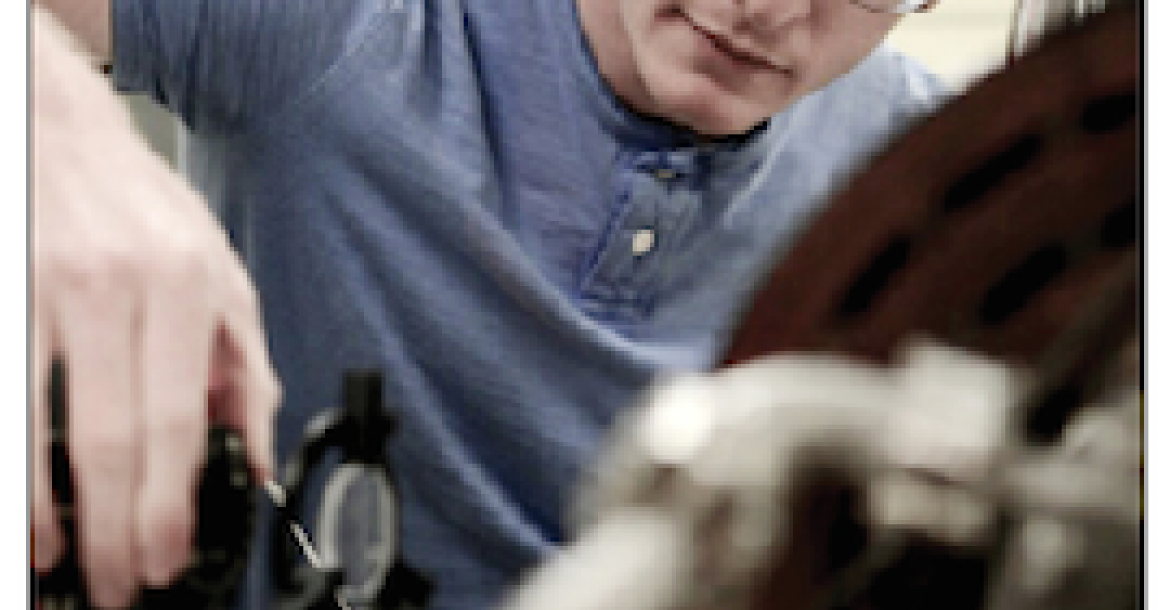Kruse learns from international internship
HARTINGTON — Jesse Kruse got physical this summer.
Well, he got really involved in physics, anyway.
The double major in physics and math at the University of Nebraska-Lincoln got the opportunity of a lifetime to intern in Switzerland over the summer.
Kruse, a 2015 graduate of Cedar Catholic High School, interned at CERN in Meyrin, Switzerland, from June through August and was able to work with and learn from some of the bigger brains in the world on the subject of physics.
That happens when you work at the most renowned physics institution in the galaxy.
“It was amazing and the most incredible experience of my life,” Kruse said. “To go and interact with people and students from all around the world who come together and solve problems of common interest. It was so cool to interact with people of different cultures and have that cultural exchange.”
The European Organization for Nuclear Research, known as CERN, is a European-research organization that operates the largest particle physics laboratory in the world. The acronym CERN is also used to refer to the laboratory, which in 2016 had 2,500 scientific, technical, and administrative staff members, and hosted about 12,000 users. In the same year, CERN generated 49 petabytes of data, according to multiple sources.
Established in 1954, the organization is based in a northwest suburb of Geneva. It is also known for the Large Hadron Collider (LHC), the world’s largest and most powerful particle collider and the largest machine in the world.
It was built by CERN between 1998 and 2008 in collaboration with over 10,000 scientists and hundreds of universities and laboratories, as well as more than 100 countries. It lies in a tunnel 17 miles in circumference and as deep as 574 feet beneath the France–Switzerland border near Geneva.
So how or why did Kruse get involved in physics? Even he can’t pinpoint the time when he started to want to, but he knows what he works in is an area many people may not understand, but indeed are affected by every day.
“Why study fundamental physics at all? Well some of these things won’t have any effects on your daily life when they are first discovered, but eventually they will,” Kruse said. “Look at the electron. It was discovered 100 years ago. They didn’t know what to use it for. But then, they discovered this science called quantum mechanics. They were able to utilize that to create semi-conductors. The computer chips are so small that they are able to fit in the phones we are talking on today. That’s because of this fundamental physical research. It’s through that research where technology evolves, and our lives potentially change.”
He was assigned to experiments, and every detector is its own experiment, according to Kruse.
His focus was on the FASER detector and to search for dark matter
Dark matter is a form of matter thought to account for approximately 85 percent of the matter in the universe and about a quarter of its total energy density. The majority of dark matter is thought to possibly be composed of some as-yet-undiscovered subatomic particles.
“You would look at particles produced in the collisions in the collider and then analyze those particles that would come,” Kruse said. “They would become particles we could actually measure and try to piece it back together to see if what we were detecting was something we already know.”
But it wasn’t always about physics when Kruse was in Switzerland.
“Geneva was fantastic, it had every single language and the town was beautiful,” Kruse said. “A lot of the towns had so much history, beautiful buildings and so many sights to see.”
He took some weekend trips, including excursions to the south of France and Parma, Italy.
Kruse also learned of the fantastic public transit systems of Europe while also discovering their pitfalls.
“If you miss your train, it sucks and you have to wait for the next one,” he said. “You can’t just get in your car and drive. You are at the whim of their time schedules.”
Then there was French food.
“Raclette is a type of cheese but also a type of dish you would serve,” Kruse said. “It’s really delicious. We got some farm fresh and you put a slab of it and melt it and pour it over boiled potatoes.”
Oh, and of course, he couldn’t go without learning more about Belgian beer and the dreadful lack of air conditioning on the other side of the Atlantic Ocean.
“Europeans don’t believe in air conditioning which makes sense since the climate there is so much more temperate,” Kruse said. “It doesn’t get very hot. You don’t get 100 degrees for two weeks at a time. You can walk out in jeans and a t-shirt and you are fine. But there was a heatwave and everyone was sweating and miserable. Those were pretty few and far.”
The college senior is wrapping up his studies and will continue to graduate school to do advanced study of physics and then pursue research in line with his current studies that involve high energy particle physics.
“The work I did this summer, I am not going to continue to do that the rest of my life,” he said. “Right now it’s a roll of dice of what school I get into, what kind of experiments they have and where do I fit.”
He aims to attend a post-graduate university on the West Coast and has his eyes set on the University of California at Berkeley due to their relationship working with CERN which could potentially put him in position to one day, maybe, return to Switzerland.
Still, nothing beats his home state.
“It would be awesome if I can come back and work here in Nebraska, being a professor at a university and maybe do research as well,” Kruse said. “This is home. I like it here.”

